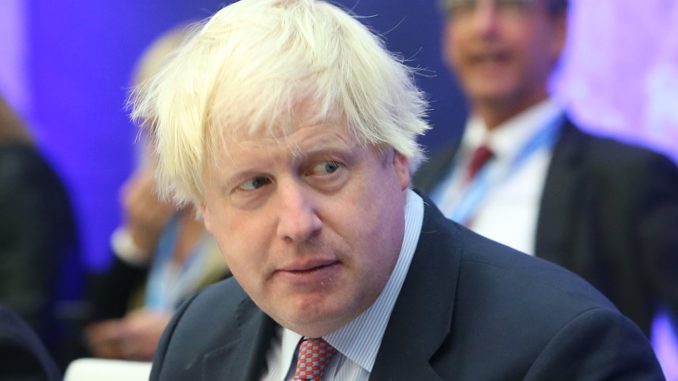
Boris Johnson lost his working majority in the UK Parliament yesterday when Tory MP Philip Lee walked across the aisle to join the Liberal Democrats during Johnson’s speech.
Hours later, a vote was scheduled which would require Johnson to seek a further delay for Brexit if no deal is made by October 19. This runs directly counter to Johnson’s promised no-deal Brexit on October 31, and the 21 Tory MPs who voted with the coalition of opposition parties to schedule that vote were summarily thrown out of the Conservative Party. They will no longer be allowed to run for re-election, nor will they be included in any Party operations.
The expelled Ministers include some who were formerly prominent members of the May government. Johnson is being praised by some members of his party for showing strength in dealing with those who will not fall in line, while other Tories are condemning his lack of appreciation for the Democratic process, particularly in light of May’s refusal to take such draconian action against Johnson and the other rebellious “hard Brexit” MPs when they repeatedly rejected her “soft Brexit” plan.
Johnson is hoping to call for new elections, which might give him a working majority by moving the seats of “soft Brexit” Tories – now unable to run for re-election under their party banner – to “hard Brexit” supporters. He is also hoping that the general unpopularity of the leader of the main opposition party, Jeremy Corbyn of Labour, would allow the Tories to win one or two more seats and restore his majority.
Unfortunately for Johnson, in order to call new elections he needs the support of 2/3 of the Parliament, and opposition leaders have indicated they will not back such an action. Instead, they are calling for a non-binding poll of the people, to determine the current political views of their countrymen.
Johnson moved last week to prevent Parliament from convening through much of September and part of October in an effort to prevent exactly this type of activity from happening. The opposition to a hard Brexit does not equate to a complete opposition to Brexit, and he was counting on those who want the UK out of the European Union with a negotiated deal on trade and the Irish border to be unable to find common ground with the “Remain” group. This effort has apparently failed, with Johnson pushing many who prefer a soft Brexit to side with “Remain” instead of choosing the complete and immediate withdrawal.
The result is a dramatically weakened Boris Johnson, which would bode very poorly for any trade deal with the U.S. even if he were to successfully trigger a hard Brexit. President Trump does not have a history of attempting to strengthen allies with beneficial trade deals; it runs directly counter to his oft-restated “America First” policy. He regularly makes unsuccessful attempts to squeeze allies for additional concessions, something to which Johnson would likely have to agree.

1 Trackback / Pingback
Comments are closed.